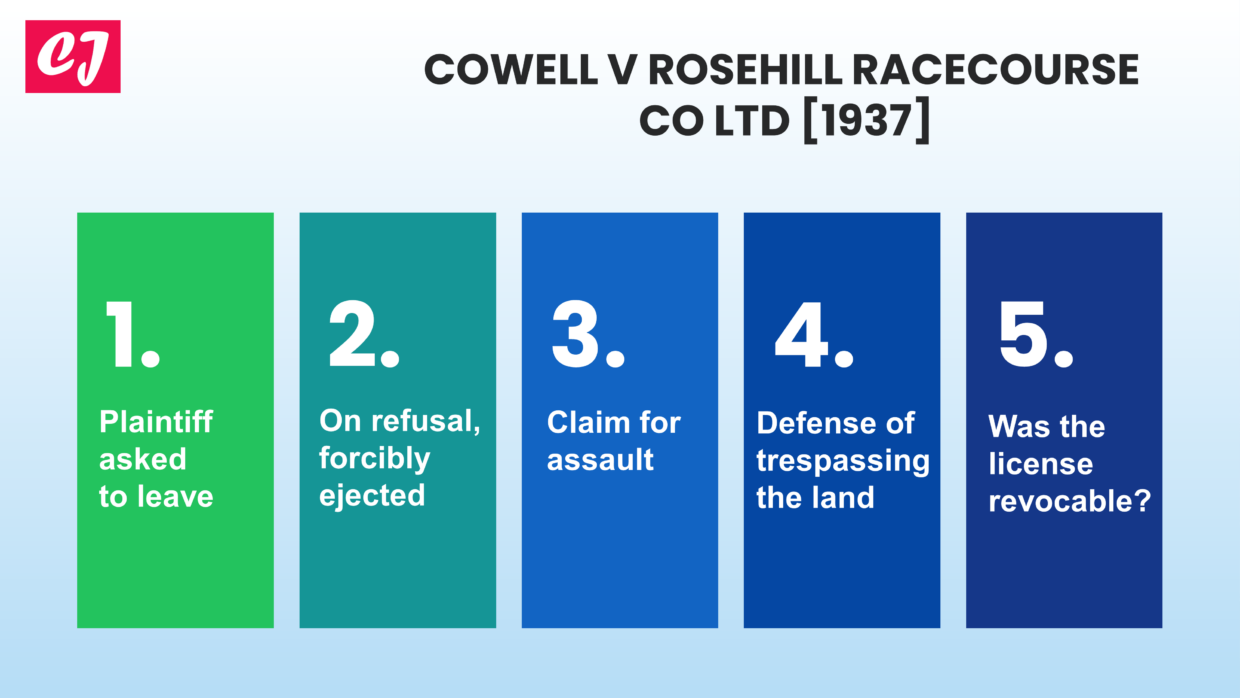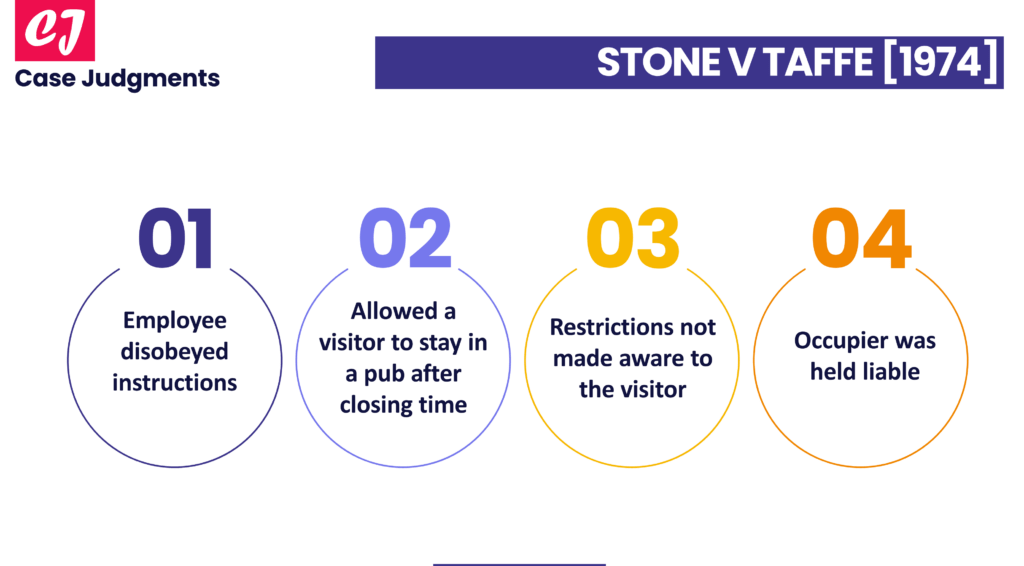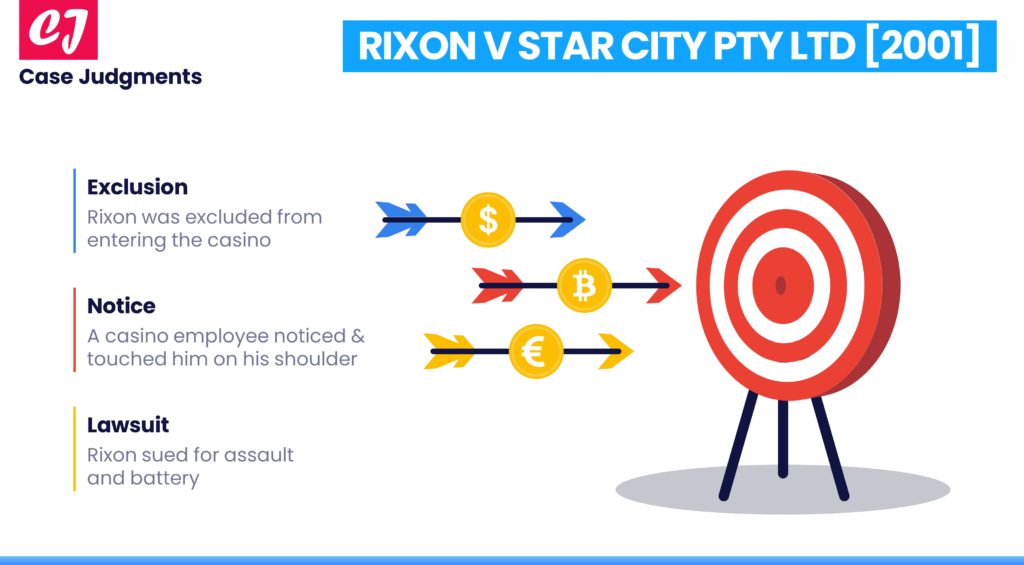
A Quick Summary of Cowell v Rosehill Racecourse Co Ltd [1937]
Cowell v Rosehill Racecourse Co Ltd [1937] is a tort law case from Australia differentiating between contractual rights and property rights.
Case name & citation: Cowell v Rosehill Racecourse Co Ltd [1937] HCA 17; (1937) 56 CLR 605; [1937] ALR 273
- The concerned Court: High Court of Australia
- Decided on: 22 April 1937
- The bench of judges: (Latham C.J., Starke, Dixon and McTiernan JJ., Evatt J. dissenting)
- Area of law: Trespass to land; Assault
What is the case about?
The case is about the revocability of licenses and whether someone buying a ticket for admission to a public entertainment event has a property interest or only a contractual right.
Facts of the case (Cowell v Rosehill Racecourse Co Ltd)
The plaintiff had paid for admission to the defendant’s racecourse but was later asked to leave on account of inappropriate behavior. Upon refusal by him to leave, he was ejected by the defendant’s servants without undue force (i.e., using no more force than was necessary).
The plaintiff filed a lawsuit seeking damages for assault. The defendant’s defense was that they had revoked the plaintiff’s license to be on the land, making him a trespasser and justifying his ejection.
Issue
Whether the plaintiff’s license to be on the racecourse a contractual right or a property one?
Could the defendant rely on the license’s revocation as a defense against the alleged assault?
Judgement of the Court in Cowell v Rosehill Racecourse
The High Court emphasized that the right to see a spectacle is not a proprietary right but a contractual one, and therefore, it cannot make the license irrevocable. It affirmed that a license is generally revocable, whether under seal or not, unless it is a license coupled with a grant of property.
Upholding the decision of the Supreme Court of New South Wales, the Court clarified that purchasing a ticket for admission to a public entertainment event grants the holder a contractual right, not a proprietary right. Further, a license remains revocable at law, even if there is an express contract not to revoke it. Revoking a license exposes the licensor to a breach of contract claim but does not affect the license’s revocability. Despite the breach of contract and the revocation of the license, the licensor is not prevented from using the termination of the license as a defense in a tort action (for example, a claim of assault in this context). The licensor can argue that the revocation of the license justified their actions, such as ejecting the licensee from a property or using reasonable force to expel trespassers.
The Court also concluded that equity would not decree specific performance or grant an unconditional injunction to prevent the revocation of a license in cases like these. It affirmed that the plaintiff had no equitable claim against the revocation of the license and was only entitled to remedies for a breach of contract.
Due to these points, the plaintiff could not be successful.
List of references:
- http://www5.austlii.edu.au/au/journals/ResJud/1938/61.pdf
- http://ndl.ethernet.edu.et/bitstream/123456789/49417/1/17.pdf
- https://s3.studentvip.com.au/notes/42230-sample.pdf?v=1613583413
You might also like:
More from tort law:

